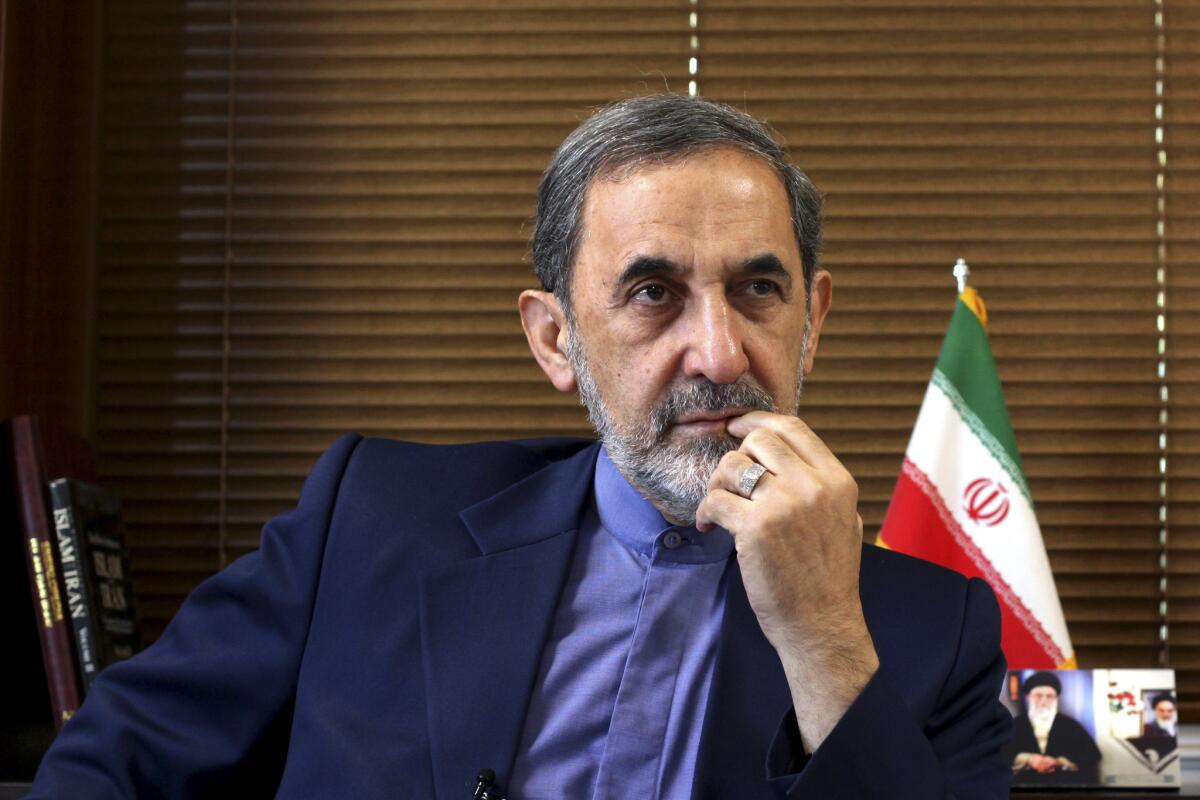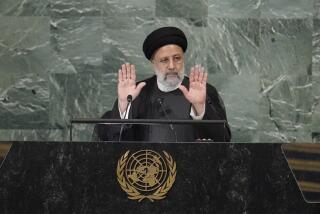Advisor to Iran supreme leader urges direct nuclear talks with U.S.

- Share via
TEHRAN -- The chief foreign policy advisor to Iran’s Ayatollah Ali Khamenei has called for direct talks with the United States on nuclear issues, a possible sign from the supreme leader that he is amenable to ending the animosity that has defined relations with Washington for 34 years.
Iranian President Hassan Rouhani has been the target of fierce criticism by political and religious hard-liners since he helped broker a deal with the United States and five other Western powers last month that will put Iranian high-level enrichment of uranium on hold for at least six months.
Conservatives in Khamenei’s clerical hierarchy and the Revolutionary Guard Corps have lambasted the Nov. 24 interim nuclear agreement as an infringement of Iranian sovereignty and have intimated that Rouhani is straying from the 1979 Islamic Revolution’s fundamental tenets.
Rouhani’s Sept. 27 phone call from President Obama, the first direct communication between Iranian and American leaders in 34 years, has come in for particularly harsh criticism from the religious leadership as a bow to pressure from a country still cast by Islamic hard-liners as “the Great Satan.”
But workaday Iranians have cheered the agreement reached in Geneva between their government and diplomats from the P5-plus-1 forum, representing the United States, Britain, France, Russia and China -- the five permanent members of the U.N. Security Council -- and Germany. The deal temporarily lifts some sanctions on the Iranian economy imposed by the West as punishment of what some suspect is a clandestine effort by Tehran to acquire nuclear weapons.
Iran insists that its nuclear program is aimed solely at developing peaceful uses of nuclear power, for energy generation and production of medical isotopes. But Washington, Israel and some countries of the European Union suspect that Tehran has been expanding its uranium enrichment capacity in preparation for breaking out enough highly enriched fuel for nuclear warheads.
Experts from the seven countries met Dec. 19-22 to work out how last month’s agreement will be implemented and remaining differences resolved so that a permanent accord on Iranian nuclear development will follow the six-month interim deal. But Iranians involved in the technical talks say progress has been painfully slow.
In an appearance Friday on state-run television, Khamenei’s foreign policy advisor, Ali Akbar Velayati, suggested that more could be accomplished if Iran and the United States discussed their differences on nuclear developments on a bilateral basis.
“We aren’t on the right path if we don’t have one-on-one talks with the six countries,” Velayati said.
As Khamenei’s right-hand man on international affairs, Velayati’s reference during the interview to the success achieved in secret talks with Washington on Iraq and Afghanistan was meant to telegraph the supreme leader’s changed views on improving ties with the United States.
“Now the supreme leader is supporting direct talks with the United States and the chance to bury the hatchet with America is very high,” said Nader Karimi Juni, a political analyst with the reformist camp in Iran that has been gaining clout since Rouhani came to power in August.
The next round of talks between Iran and the six powers is to begin Monday in Geneva, and Velayati’s appeal for addressing each nation’s particular concerns individually could clear away obstacles to a permanent agreement imposed by some of the ideologically diverse P5-plus-1 members.
Twitter: @cjwilliamslat
Special correspondent Mostaghim reported from Tehran and Times staff writer Williams reported from Los Angeles.
More to Read
Sign up for Essential California
The most important California stories and recommendations in your inbox every morning.
You may occasionally receive promotional content from the Los Angeles Times.











